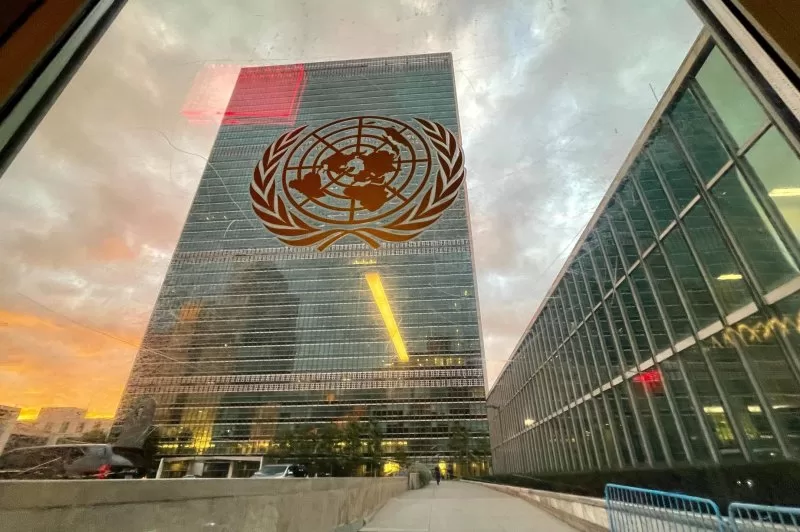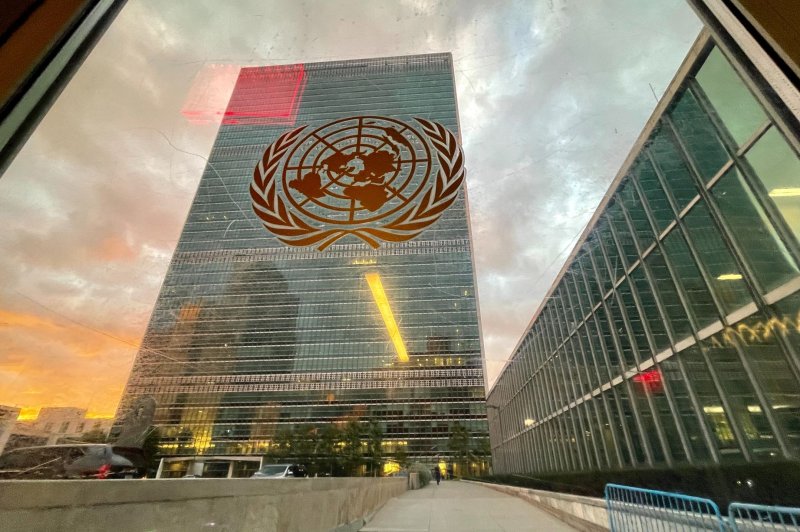A panel of United Nations experts specializing in an equitable international order, racism, poverty, physical and mental health, human trafficking, modern slavery and extra-judicial killings urged all countries that have not already done so to recognize Palestine as a state. Pool Photo by Eduardo Munoz/UPI |
License PhotoJune 3 (UPI) — A panel of United Nations experts on Monday called on all nations to recognize Palestine as a state, in line with the 146 countries that have already done so, and use all their political and diplomatic leverage to bring about an immediate cease-fire.
Recognition constituted an “important acknowledgement of the rights of the Palestinian people and their struggles and suffering towards freedom and independence,” the experts were quoted as saying in a U.N. Humans Rights Office news release.
Palestine, they said, must be granted “full self-determination, including the ability to exist, determine their destiny and develop freely as a people with safety and security.”
“This is a pre-condition for lasting peace in Palestine and the entire Middle East — beginning with the immediate declaration of a cease-fire in Gaza and no further military incursions into Rafah,” said the panel of 26 experts in fields ranging from democracy, human rights to safe drinking water, sanitation and education to the rights of internally displaced people, indigenous people and the use of mercenaries.
The group defined “State of Palestine” as being the state formally declared by the Palestine Liberation Organization Nov. 15, 1988, that claims sovereignty over parts of historic Palestine occupied by Israel in the 1967 war — the West Bank including East Jerusalem and the Gaza Strip.
The experts hailed the joint move last week by Norway, Ireland and Spain to recognize Palestinian statehood with Spanish Prime Minister Pedro Sanchez calling it an “historic” shift with the sole aim of “achieving peace between Israelis and Palestinians.”
“The recognition of the State of Palestine is not only a matter of historical justice with the legitimate aspirations of the Palestinian people: it is also an urgent need,” Sanchez said.
“It is the only way towards the only possible solution to achieve a future of peace: that of a Palestinian State that coexists alongside the State of Israel in peace and security.”
The three European countries’ decision came two weeks after the U.N. General Assembly voted 143-9 in favor of Palestine’s bid to become a full member of the United Nations.
Decisions by the General Assembly, however, are not binding.
“Even though the prospect of lasting peace and an end to occupation has remained elusive since the Oslo Accords more than 30 years ago, a political solution should not be considered foregone,” the experts said.
“A two-state solution remains the only internationally agreed path to peace and security for both Palestine and Israel and a way out of generational cycles of violence and resentment.”
The panel also backed a bid by the International Criminal Court’s top prosecutor seeking warrants for the arrest of Israeli Prime Minister Benjamin Netanyahu, Minister of Defense Yoav Gallant and three top Hamas leaders on war crimes and crimes against humanity allegations, calling it “a promise of accountability and an end to impunity in the occupied Palestinian territory.”
They also urged member states to refrain from verbal attacks and efforts to intimidate the ICC and the International Court of Justice in the wake of the rows sparked by the arrest warrants bid and the ICJ’s May 24 ruling ordering Israel to halt its offensive in the southern Gaza city of Rafah.
“These courts must operate without foreign interference and threats, to uphold the promise of global justice and individual accountability for all victims of the conflict,” they wrote.

